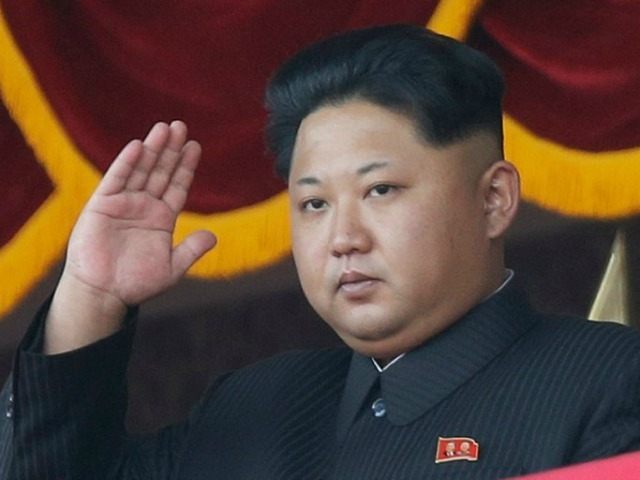A scathing column in the Chinese government publication Global Times condemns the nation’s Communist allies in North Korea as “the most insecure country in the world,” calling for a political solution to tensions between Pyongyang and Washington.
The column, published this week, followed a visit by American Secretary of State Rex Tillerson to South Korea, Japan, and China. His hosts in China appeared extremely pleased by Tillerson’s use of “win-win cooperation” language – by now, boilerplate statements in Chinese diplomacy – and eager to cooperate economically with Washington.
The Global Times‘ columnists argued on Thursday that the fact that North Korea has continued to engage in belligerent, if also internationally embarrassing, military behavior is a sign that sanctions on Pyongyang are having the intended effect. North Korea attempted to launch a missile at Japan on Thursday, believed to be a response to international calls for dictator Kim Jong-un to abandon his illegal nuclear program. The missile in question “exploded right after it took off from a launch pad” and appeared to represent no danger to its intended target. As it exploded within seconds of launch, it was impossible for South Korea and U.S. military observers to confirm the exact target of the launch.
“The failure of this launch revealed the immaturity of North Korea’s missile technology,” the Times taunts. “The international sanctions have worked. It has become more difficult for North Korea to acquire resources for missile research and development.”
International sanctions, the Times continues, will “exert a long-term effect. They will seriously undermine missile research and development, but not endanger the survival of the Korean regime in the short-term.”
“North Korea has claimed to have nuclear weapons, but also has become the most insecure country in the world,” the authors argue. The Times recommends for China to continue participating in some sanctions against North Korea, but not all. “As long as China doesn’t completely close its border with North Korea, doesn’t implement a full embargo on food and necessities, and doesn’t pose a direct threat to the survival of the Korean regime, China and North Korea will not come to the point of confronting each other despite their cold relations,” the Times predicts.
China is North Korea’s largest trading partner and a fellow Communist nation, one of the few remaining on the globe. Up to 85 percent of North Korea’s international trade comes from China; the nation relies heavily on Chinese food and fuel exports, and the little it exports mostly goes to China. China has been reluctant to cut ties with Pyongyang, though recently opted to cease importing North Korean coal for the rest of the year. Beijing claimed it was “ludicrous” to suggest that the new policy was a response to the assassination of Kim Jong-nam, brother to Kim Jong-un and long believed to enjoy a positive relationship with China, instead suggesting Beijing was aspiring to adhering to U.N. sanctions requirements.
To make up for the profits it expected from Beijing, North Korea is publicizing a new tourist cruise program, seeking international investors to develop tours around North Korea’s mountainous Kosong port area.
North Korea also issued a rare condemnation of China’s behavior in halting North Korean coal imports in February. Without mentioning China by name, a column in the state-run Korean Central News Agency (KCNA) condemned the “friendly neighbor” as a “vassal state … dancing to the tune of the U.S. while defending its mean behavior with such excuses that it was meant not to have a negative impact on the living of the people in the DPRK but to check its nuclear program.”
China’s barbs at North Korea follow a period of somewhat surprising diplomacy between Beijing and Washington. While Secretary of State Tillerson used his Asia trip to pressure China into flexing its muscle to curb North Korean belligerence, he made his strongest public statements in Japan and South Korea, not China. “We look to China to fulfill its obligations and fully implement the sanctions called for,” Tillerson said in Tokyo last week. In China, he told reporters he was looking to expand “win-win cooperation.”
“His tone is widely seen as ‘moderate’ compared with his earlier statements in South Korea and Japan,” the Global Times said of his remarks in China. The publication also cited experts who praised his call for an end to the Obama-era policy of “strategic patience” with North Korea and his statement seeking a “new model of major power relations” with China. These indicate a possibility that China will aid the United States on the international stage in calling for sanctions, though much remains on the line in anticipation of President Xi Jinping’s meeting with President Donald Trump in April.
At the U.N., the Security Council is preparing to pass a new resolution this week condemning the atrocious human rights record of the Kim regime, according to the South Korea Foreign Ministry.

COMMENTS
Please let us know if you're having issues with commenting.